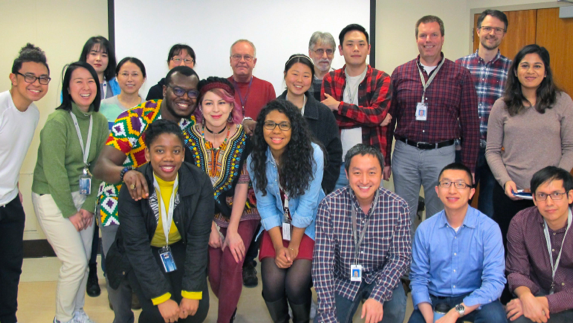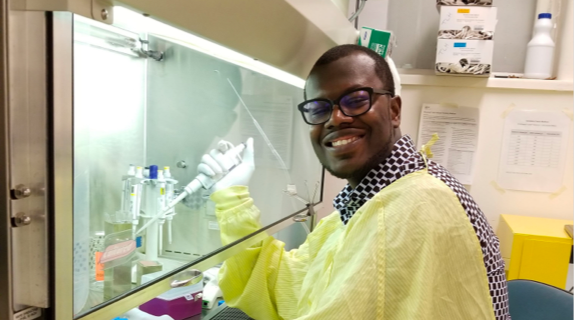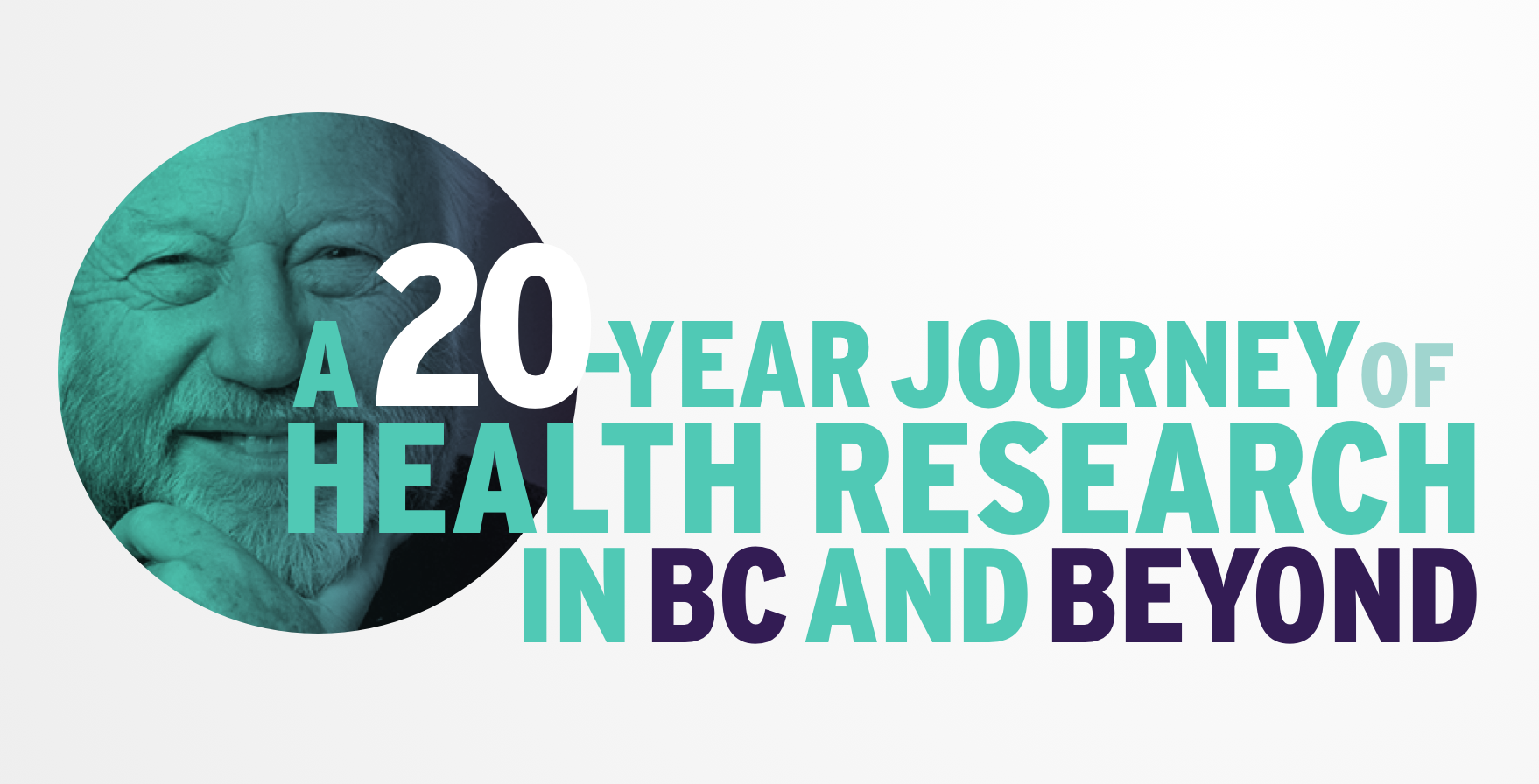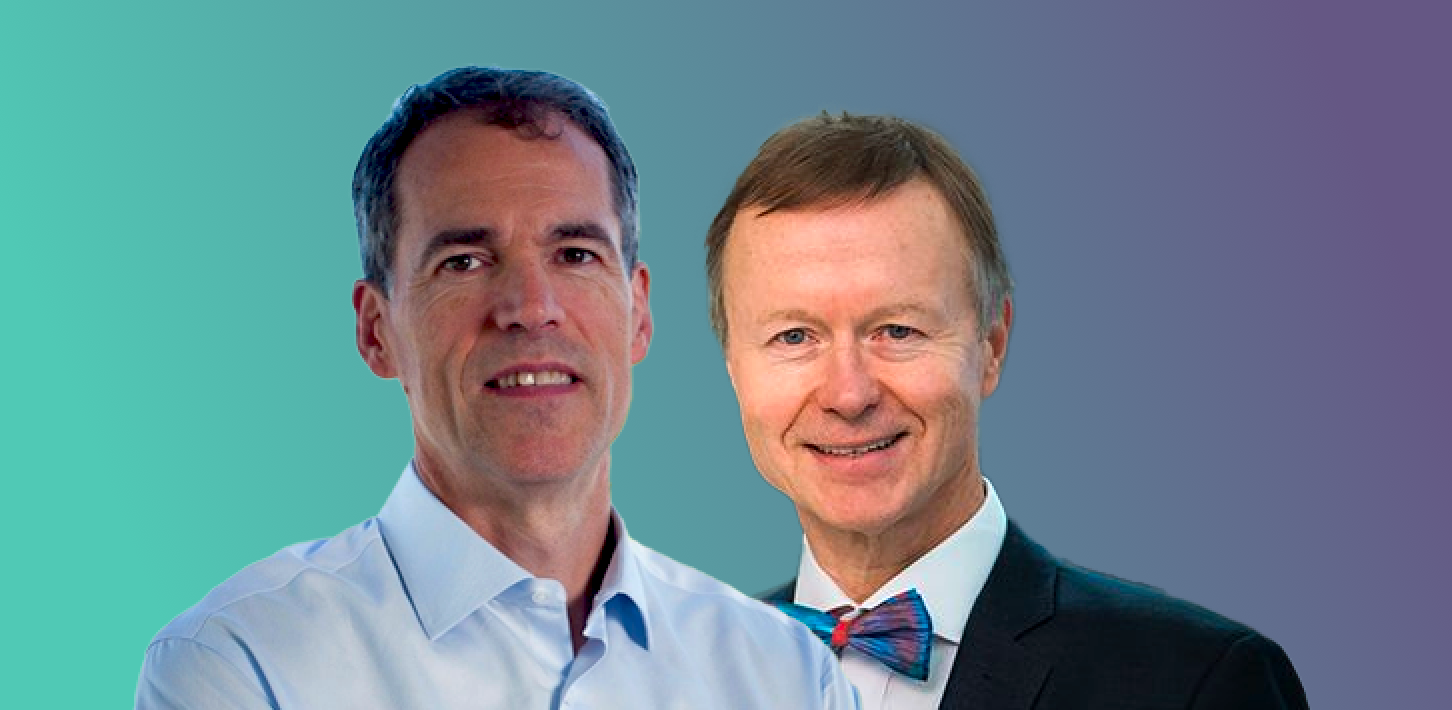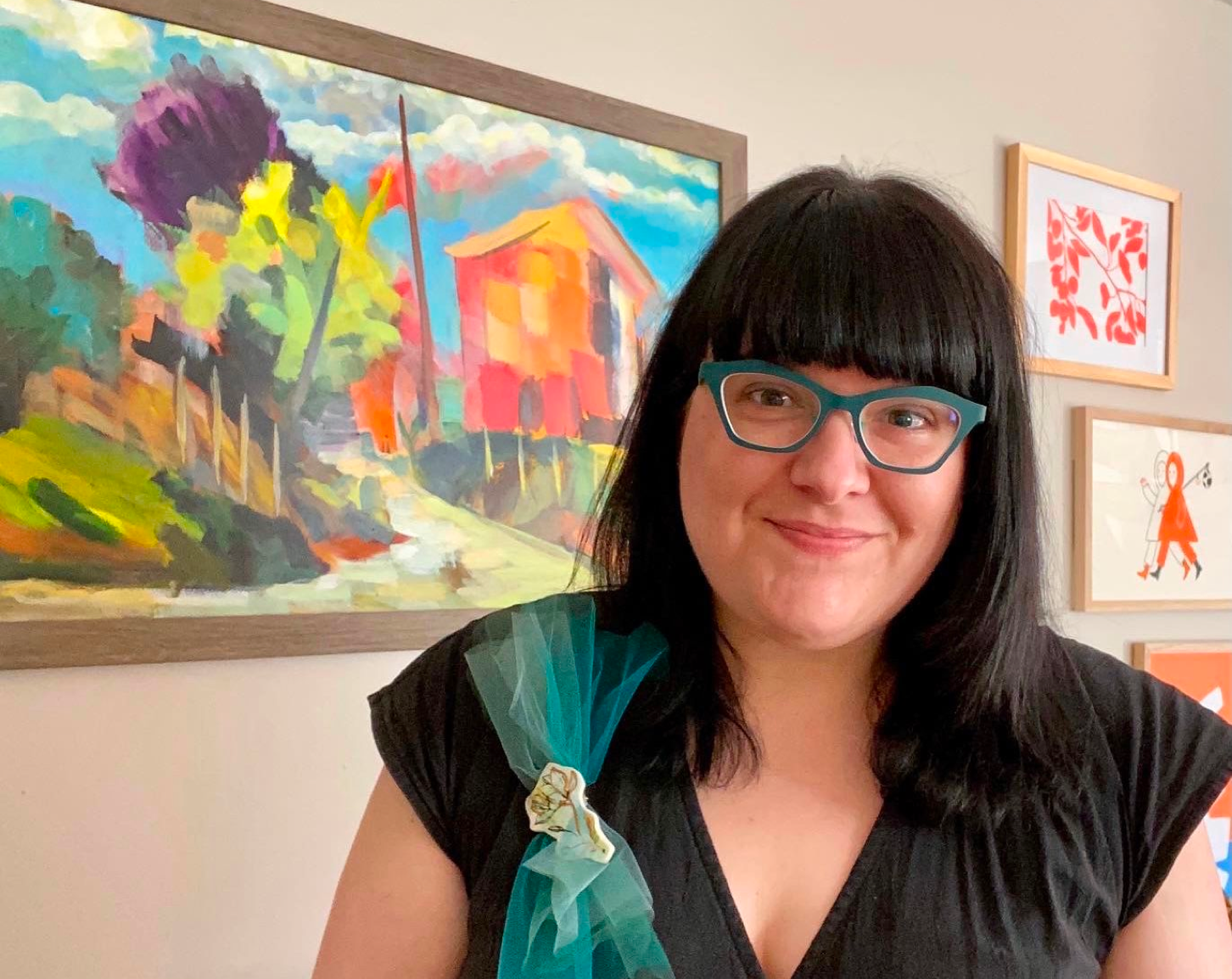A 20-year journey of health research in BC: Developing new pathways through 3D modelling
8 September 2021
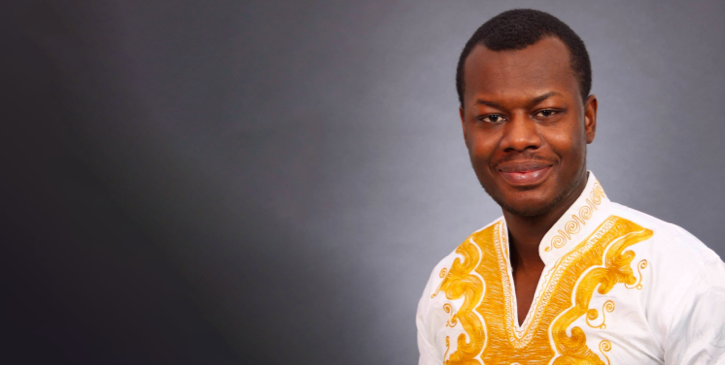
Dr. Emmanuel Osei
Dr. Emmanuel Osei: Developing new pathways to better understand health conditions and improve outcomes through 3D modelling
For Dr. Emmanuel Osei, a winding path from his home country of Ghana to a faculty role at UBC Okanagan began due to an overwhelming urge to travel. Coming from a line of educators, young Emmanuel was fascinated by academics of colour who freely travelled and shared their knowledge worldwide. He made it a goal to continue his studies internationally.
“I thought I would try my luck,” Emmanuel chuckles when describing the lengthy international application processes. His dedication and potential shone through and, in 2010, he was one of nearly 800 students across British-colonized countries in Africa who received the prestigious, fully-paid Commonwealth Scholarship. He was thrilled and eagerly hopped on his first flight to the UK.
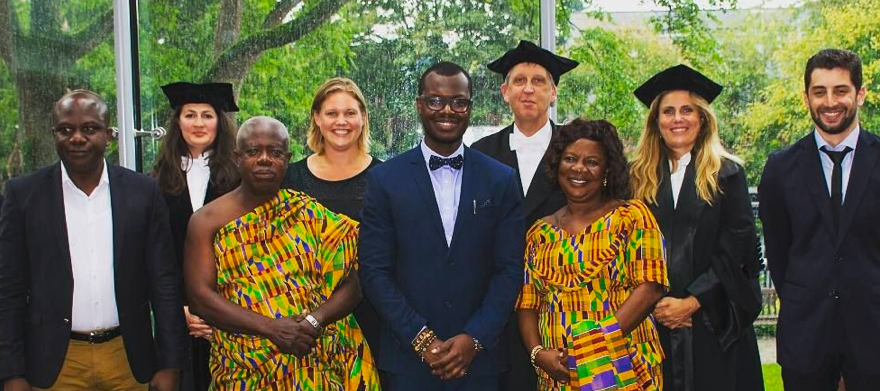
It was in the UK that Emmanuel narrowed his interest, choosing to focus on tissue engineering and cell biology, building 3D models of the brain to understand the effects of injuries on cells. The 3D models were some of the first in the world to be used for research purposes, helping scientists like Emmanuel better “see” how brain cells would behave, a process that is more accurate than studying a flat printout.
“I used to feel the weight of representing an entire continent. But we are in a place where people are beginning to tackle the issues. Be passionate about what you want to do and believe that you can achieve it.”
Following his studies in the UK, Emmanuel returned home to Ghana to teach cell biology to first- and second-year medical students at the Kwame Nkrumah University Of Science & Technology. It was an incredibly fulfilling two years supporting budding researchers in lecture halls of up to 350 students per semester. Yet, deep down, Emmanuel was still feeling the urge to travel and he continued to apply to PhD programs across the world.
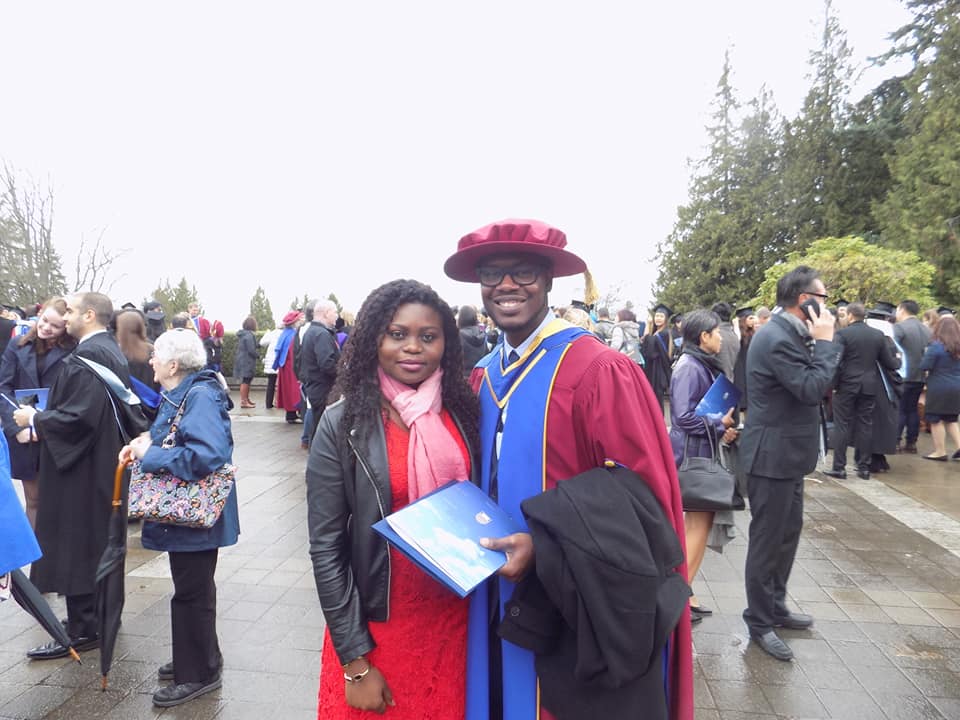
In 2013, Emmanuel received the exciting news that he had secured a spot in the joint PhD program between the University of British Columbia and the University of Groningen in the Netherlands. After spending his first two years in the Netherlands, he landed in Vancouver — where he found not only a mentor, but a supportive community to call a second home. “The resources in BC are at the forefront of lung research,” Emmanuel explains. “Not only the resources, but the personnel. My principal investigator, Dr. Tillie Hackett has been a very influential mentor in my life.”
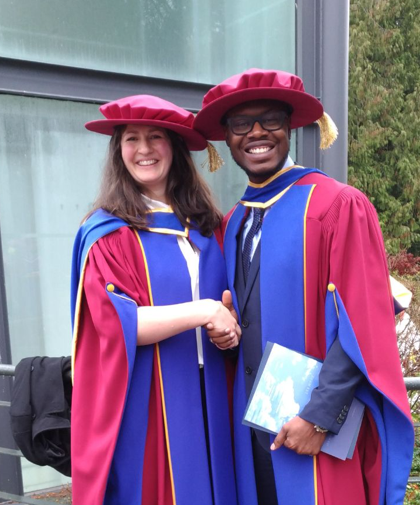
In 2019, Emmanuel received an MSFHR Research Trainee Award, which helped him further his research to understand the contribution of small airways within the lungs that are often scarred in asthma patients. By using 3D models of patients’ lung cells, Emmanuel hopes to pinpoint the genes involved in the scarring and blockades in the airways of asthmatic patients and, one day, develop new therapeutics to help. “MSFHR enabled me to focus on my science, and I am excited about the 3D technology that can help transfer knowledge from the lab to the bedside.”
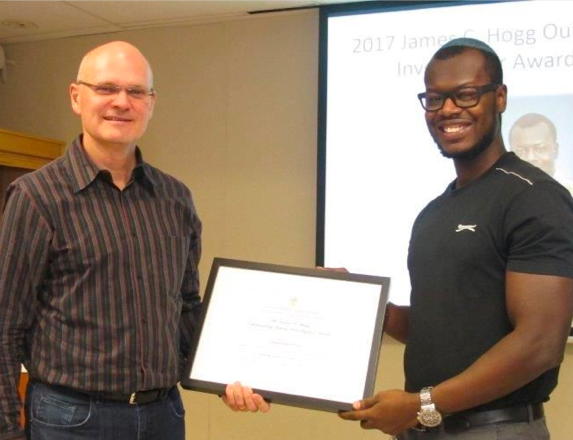
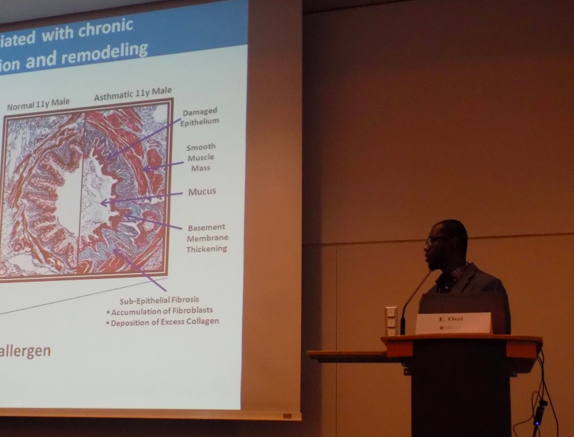
Now in 2021, the first-time father and new assistant professor at the University of British Columbia Okanagan has much to look forward to, including setting up his own lab at the Okanagan campus. Reflecting on his journey across continents to his new home, he shares his advice for new trainees, particularly individuals of colour: “I used to feel the weight of representing an entire continent. But we are in a place where people are beginning to tackle the issues. Be passionate about what you want to do and believe that you can achieve it. We have a health research community here with the will to support young researchers.”
“MSFHR enabled me to focus on my science, and I am excited about the 3D technology that can help transfer knowledge from the lab to the bedside.”
